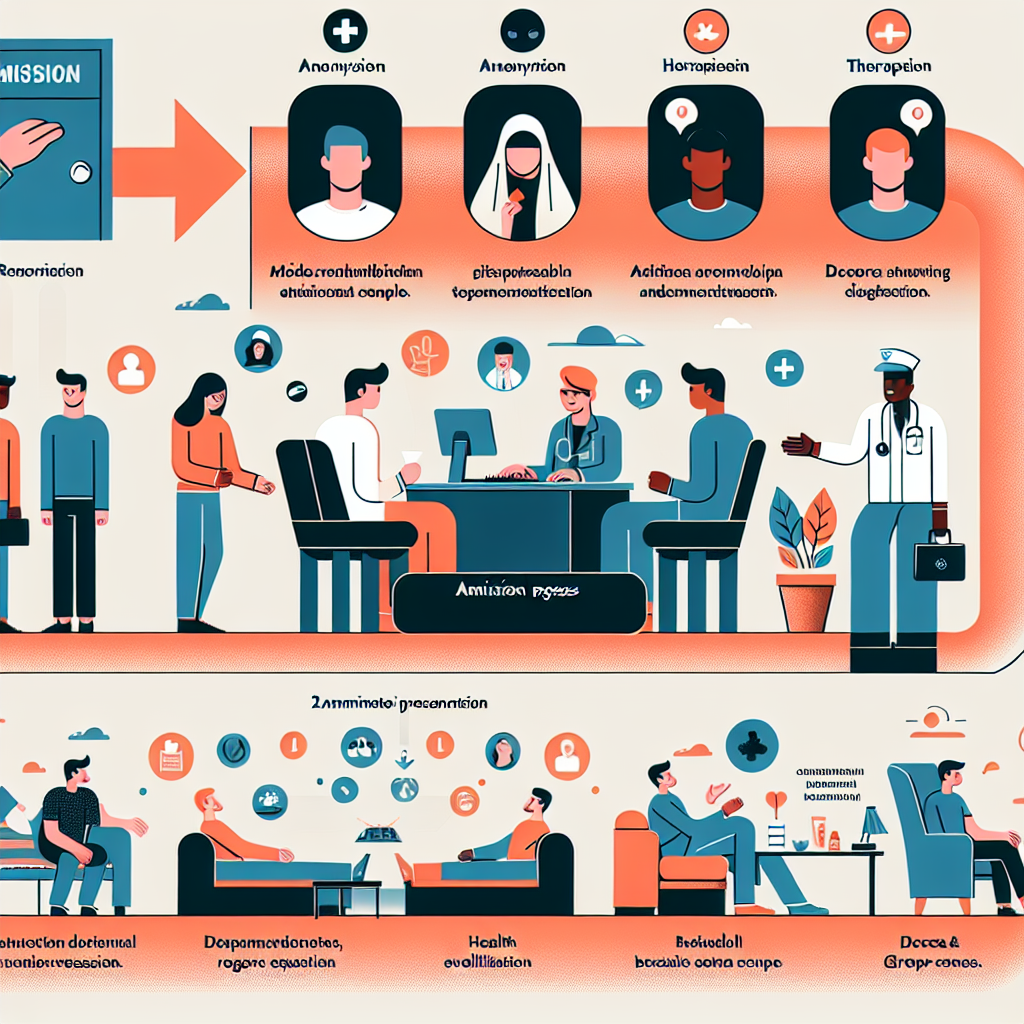-
Table of Contents
“Empowering Recovery: Transforming Lives with Proven Cocaine Rehab Therapies”
Introduction
Effective therapies in cocaine rehab are crucial for addressing the complex physical and psychological dependencies associated with cocaine addiction. These therapies encompass a range of evidence-based approaches designed to help individuals achieve and maintain sobriety. Cognitive-behavioral therapy (CBT) is a cornerstone treatment, focusing on identifying and altering negative thought patterns and behaviors related to drug use. Contingency management (CM) offers tangible rewards for positive behaviors such as maintaining sobriety, thereby reinforcing healthy choices. Motivational interviewing (MI) helps individuals find internal motivation to change their behavior. Additionally, pharmacological treatments, though still under research, aim to reduce cravings and withdrawal symptoms. Group therapy and support groups provide communal support and shared experiences, fostering a sense of belonging and accountability. Holistic approaches, including mindfulness, exercise, and nutrition, support overall well-being and recovery. Together, these therapies create a comprehensive treatment plan that addresses the multifaceted nature of cocaine addiction, promoting long-term recovery and improved quality of life.
Cognitive Behavioral Therapy: A Key Component in Cocaine Rehab
Cognitive Behavioral Therapy (CBT) has emerged as a cornerstone in the treatment of cocaine addiction, offering a structured and effective approach to help individuals regain control over their lives. This therapeutic method is grounded in the understanding that our thoughts, feelings, and behaviors are interconnected, and by altering negative thought patterns, we can bring about significant changes in behavior. For those struggling with cocaine addiction, CBT provides a pathway to recovery that is both practical and empowering.
One of the primary reasons CBT is so effective in cocaine rehab is its focus on identifying and challenging the distorted thinking that often accompanies addiction. Individuals battling cocaine dependency frequently experience a range of cognitive distortions, such as black-and-white thinking, catastrophizing, and overgeneralization. These thought patterns can perpetuate the cycle of addiction, making it difficult for individuals to see a way out. Through CBT, patients learn to recognize these distortions and replace them with more balanced and realistic thoughts, thereby reducing the emotional distress that often triggers substance use.
Moreover, CBT equips individuals with essential coping skills to manage cravings and avoid relapse. Cocaine addiction is characterized by intense cravings that can be overwhelming and difficult to resist. CBT helps individuals develop strategies to cope with these cravings, such as distraction techniques, mindfulness practices, and problem-solving skills. By learning to manage their cravings effectively, individuals can reduce the likelihood of relapse and maintain their sobriety over the long term.
In addition to addressing cognitive distortions and cravings, CBT also emphasizes the importance of behavioral change. This aspect of therapy involves identifying and modifying the behaviors that contribute to addiction. For example, individuals may learn to avoid situations or environments that trigger their drug use, develop healthier routines, and engage in activities that promote well-being and fulfillment. By making these behavioral changes, individuals can create a lifestyle that supports their recovery and reduces the risk of relapse.
Another key component of CBT in cocaine rehab is the development of a strong therapeutic alliance between the patient and therapist. This relationship is built on trust, empathy, and collaboration, providing a safe and supportive environment for individuals to explore their thoughts and feelings. The therapist acts as a guide, helping the patient navigate the challenges of recovery and offering encouragement and support along the way. This therapeutic alliance is crucial for fostering motivation and commitment to the recovery process.
Furthermore, CBT is a highly adaptable and individualized form of therapy, making it suitable for a wide range of individuals. It can be tailored to meet the specific needs and circumstances of each patient, ensuring that the treatment is relevant and effective. Whether delivered in individual or group settings, CBT offers a flexible approach that can be integrated with other therapeutic modalities, such as medication-assisted treatment, to provide comprehensive care.
The success of CBT in cocaine rehab is supported by a growing body of research. Studies have consistently shown that individuals who participate in CBT are more likely to achieve and maintain sobriety compared to those who do not receive this form of therapy. The evidence underscores the importance of incorporating CBT into cocaine rehab programs as a key component of treatment.
In conclusion, Cognitive Behavioral Therapy plays a vital role in the rehabilitation of individuals struggling with cocaine addiction. By addressing cognitive distortions, developing coping skills, promoting behavioral change, and fostering a strong therapeutic alliance, CBT provides a powerful and effective framework for recovery. Its adaptability and evidence-based approach make it an indispensable tool in the journey toward lasting sobriety and a healthier, more fulfilling life.
The Role of Contingency Management in Cocaine Addiction Treatment
Contingency management has emerged as a highly effective therapy in the realm of cocaine addiction treatment, offering a beacon of hope for individuals struggling to break free from the grip of this powerful substance. This therapeutic approach is grounded in the principles of behavioral psychology, utilizing positive reinforcement to encourage sobriety and promote healthier lifestyle choices. By providing tangible rewards for meeting specific treatment goals, contingency management helps to reshape behavior patterns and foster a sense of accomplishment and motivation in patients.
One of the key strengths of contingency management lies in its simplicity and directness. Patients are rewarded for demonstrating positive behaviors, such as attending therapy sessions, passing drug tests, or participating in support groups. These rewards can range from vouchers and gift cards to more substantial incentives, depending on the program’s structure. The immediate gratification provided by these rewards can be particularly effective in counteracting the instant but destructive pleasure derived from cocaine use. This approach helps to rewire the brain’s reward system, gradually shifting the focus from drug-seeking behaviors to healthier, more productive activities.
Moreover, contingency management is not a one-size-fits-all solution; it is highly adaptable and can be tailored to meet the unique needs of each individual. This flexibility is crucial, as it allows therapists to design personalized treatment plans that address the specific challenges and triggers faced by each patient. By setting achievable goals and providing consistent reinforcement, contingency management creates a structured and supportive environment that fosters long-term recovery.
In addition to its adaptability, contingency management is often used in conjunction with other therapeutic modalities, enhancing its overall effectiveness. For instance, cognitive-behavioral therapy (CBT) can be integrated with contingency management to address the underlying thought patterns and emotional triggers that contribute to cocaine addiction. This combination allows patients to develop coping strategies and build resilience, further strengthening their commitment to sobriety. Similarly, incorporating contingency management into a comprehensive treatment plan that includes medical interventions, such as medication-assisted treatment (MAT), can provide a holistic approach to recovery.
The success of contingency management is also supported by a growing body of research. Numerous studies have demonstrated its efficacy in reducing cocaine use and improving treatment retention rates. For example, a study published in the Journal of Substance Abuse Treatment found that patients who participated in contingency management programs were more likely to complete treatment and achieve sustained abstinence compared to those who did not receive such interventions. These findings underscore the potential of contingency management to transform lives and offer a pathway to recovery for individuals battling cocaine addiction.
Furthermore, the inspirational aspect of contingency management cannot be overstated. By celebrating small victories and acknowledging progress, this approach instills a sense of hope and empowerment in patients. It reinforces the belief that change is possible and that every step taken towards sobriety is a step towards a brighter future. This positive reinforcement can be a powerful motivator, helping individuals to stay committed to their recovery journey even in the face of challenges and setbacks.
In conclusion, contingency management plays a pivotal role in cocaine addiction treatment, offering a practical and effective means of promoting sobriety and fostering long-term recovery. Its adaptability, compatibility with other therapies, and strong empirical support make it a valuable tool in the fight against cocaine addiction. By harnessing the power of positive reinforcement, contingency management not only helps individuals to overcome their addiction but also inspires them to build a healthier, more fulfilling life.
Q&A
1. **Question:** What is Cognitive Behavioral Therapy (CBT) and how is it used in cocaine rehab?
**Answer:** Cognitive Behavioral Therapy (CBT) is a form of psychotherapy that helps individuals identify and change negative thought patterns and behaviors associated with cocaine use. In cocaine rehab, CBT is used to develop coping strategies, improve problem-solving skills, and prevent relapse by addressing the underlying psychological triggers of addiction.
2. **Question:** What role does Contingency Management (CM) play in cocaine rehab?
**Answer:** Contingency Management (CM) is a behavioral therapy that uses positive reinforcement to encourage abstinence from cocaine use. In cocaine rehab, CM involves providing tangible rewards, such as vouchers or prizes, for drug-free urine tests or other positive behaviors, thereby motivating individuals to maintain sobriety and engage in treatment.
Conclusion
Effective therapies in cocaine rehab include cognitive-behavioral therapy (CBT), contingency management, and motivational interviewing. These approaches help individuals recognize and change maladaptive behaviors, reinforce positive behaviors through rewards, and enhance motivation to stay drug-free. Additionally, integrating pharmacological treatments, such as disulfiram and topiramate, can support the therapeutic process. Combining these evidence-based therapies with a comprehensive, individualized treatment plan significantly improves the chances of successful recovery from cocaine addiction.



